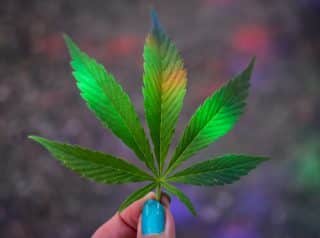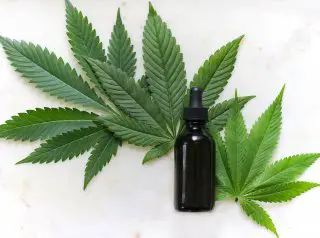It is normal to feel down or sad at times. But, if the feeling of sadness, loss, or even anger persists, it could lead to depression and start interfering with your day-to-day activities.
Depression is a mood disorder that can affect anyone, regardless of age, gender, race, or economic background. Globally, it is the leading cause of disability. It should also not be taken lightly as this condition could worsen if left unaddressed.
Several treatment options exist – including therapy, medications, and lifestyle changes. There is no “one size fits all” treatment, and it comes down to your specific needs and condition. Some people, for instance, respond poorly or adversely to conventional methods. As a result, they are forced to seek alternative options. One such remedy is marijuana.
Experts, in response, have started looking into the possible use of the plant as a treatment. While research is still limited, the current data already shed more light on the topic.
Mostly, these are the core concepts you need to understand:
- The endocannabinoid system and depression
- The potential benefits and potential risks of using marijuana for depression
- The effects of CBD on depression
Page Content
I. Endocannabinoid System and Depression
THC and other cannabinoids interact with the receptors in the endocannabinoid system (ECS) to produce a range of effects.
Found in the human body, especially the brain, is the endocannabinoid system (ECS). It is a complex modulatory network that helps regulate mood and other vital processes and functions. Once THC and other cannabinoids enter the bloodstream, they find their way to and bind with ECS receptors to produce a range of effects. This makes them a potential therapeutic target for the treatment of depression and other mood disorders.
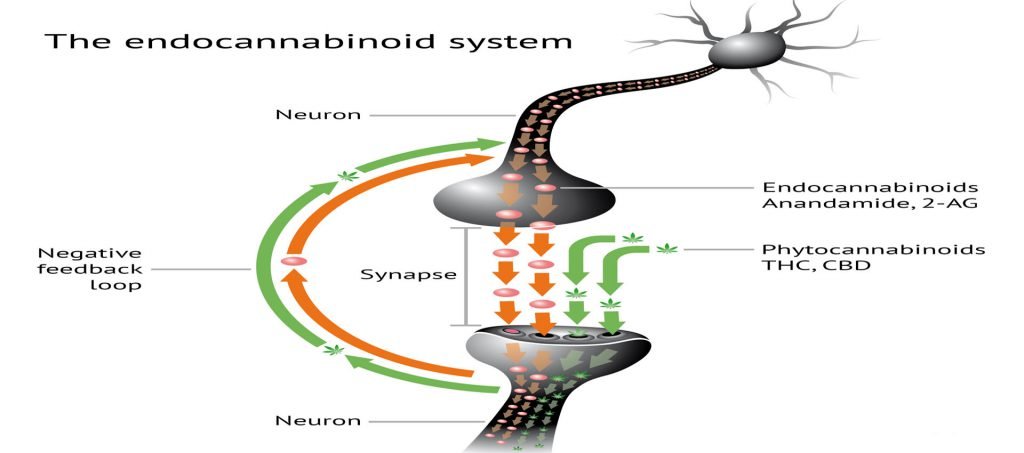
There are two types of cannabinoid receptors – CB1 and CB2. THC – the primary psychoactive compound of marijuana – is a partial agonist of both receptors. Of note is CB1 – mostly found in brain areas involved in mood and behavior modulation. Once bound, THC could induce antidepressant-like effects similar to what conventional antidepressant drugs produce.
II. How Marijuana Can Help With Depression
Given the putative role of the ECS in mood regulation, it is hardly surprising that marijuana – which acts upon it – could impact depression and other mood disorders as well. Lab and animal studies, for instance, hint at marijuana’s potent antidepressant properties. Meanwhile, survey-based research suggests that it could reduce depressive symptoms.
Has Antidepressant Properties
Using the automated mouse forced swim (FST) and tail suspension (TST) tests, researchers evaluated the antidepressant action of THC and other cannabinoids. These are experimental models used to assess the efficacy of antidepressant agents.
In the FST test, THC showed significant antidepressant-like effects at 2.5 mg/kg. Cannabichromene (CBC) and cannabidiol (CBD) also had a substantial impact at 20 and 200 mg/kg, respectively. Cannabigerol (CBG) and cannabinol (CBN), on the other hand, did not produce antidepressant-like actions even up to 80 mg/kg.
THC also generated the same notable effects at 2.5 mg/kg in the TST. As for CBC, it required higher doses – 40 and 80 mg/kg – to exhibit a dose-dependent decrease in immobility. This can be interpreted as a reduction in depressive symptoms.

From these findings, researchers concluded that the antidepressant-like actions of marijuana played a significant role in overall mood-elevation.
Terpenes are another class of organic compounds found in marijuana. These are aromatic oils that give strains their distinct smells and flavors. They are also widely-known to enhance the effects of cannabinoids through the so-called “entourage effect.”
Some of the most common terpenes found in marijuana are Limonene, beta-caryophyllene, and linalool. These three also happen to have properties that help ease depression. Strains that have a citrusy, peppery, or floral fragrance are likely to have these compounds.
Linked to Reduced Depression
Researchers in one study analyzed data collected from more than 4400 adults to investigate the link between marijuana use and depression. The participants – all of whom suffered from severe depression – were divided into groups based on their cannabis intake.
Compared to non-users, daily users reported less depressed mood, more positive demeanor, and fewer bodily discomforts. The same goes for those who smoked weed once a week or less. These results suggest that marijuana can decrease depression, not increase the risk.
Promote Neurogenesis in the Hippocampus
Neurogenesis is the process of creating new, functional neurons in the hippocampus. Stress, unfortunately, has been shown to reduce hippocampal neurogenesis levels. This, in turn, could lead to the development of various psychiatric disorders – including depression. And in already depressed patients, it could even cause cognitive deficits.
Marijuana could promote neurogenesis. One study, for example, shows that chronic antidepressant treatment could increase hippocampal neurogenesis. Theoretically, marijuana could do the same thing due to its antidepressant properties.
Indeed, another study found that activating the CB1 receptor resulted in the proliferation of neural stem/progenitor cells – the hippocampal cells capable of forming new neurons. More importantly, chronic treatment of HU210 induced hippocampal neurogenesis. As a result, it produced anxiolytic- and antidepressant-like effects. HU210, incidentally, is a cannabinoid receptor agonist like THC, but a hundred times more potent.
Researchers also confirmed the role of hippocampal neurogenesis in the behavioral effects of both marijuana and antidepressant drugs in a more recent review of over 20 in vivo and in vitro studies.
III. Risks and Considerations
Although marijuana is beneficial in battling depression, using it is not without downsides. Primarily, it is because of THC, which has been associated with some adverse effects.
Teenagers and young adults, for example, may have to avoid its use.
That is because repeated CB1 activation – brought about by regular THC exposure – may lead to the downregulation of the ECS in the cortex and limbic regions in the brain. Consequently, it could interfere with the undergoing neurodevelopment in the frontal and limbic areas. This has been associated with increased depressive and anxiety symptoms, among others.
Worsen Depressive Symptoms
In numerous studies, marijuana has demonstrated its ability to combat depression. Ironically, there is also evidence that it could worsen depressive symptoms – or slow down symptom improvement. That was the conclusion reached by researchers in a study that showed frequent cannabis use increasing depressive symptoms. The relationship was more pronounced in adolescence and declined afterward.
The use of marijuana was associated with poor recovery, according to one study involving 307 psychiatry outpatients with depression. In particular, it worsened the symptoms of depression and anxiety, resulting in poor mental health.

Among these people, 40% claimed using marijuana mostly for non-medical reasons. Compared to non-users, recreational users had worse mental health functioning, higher suicidal ideation, and fewer psychiatric visits. Over time, they also experienced less improvement in depression symptoms. Medical use, on the other hand, was linked to worse mental and physical health functioning.
Since both studies strictly involve psychiatry outpatients, it is difficult to say how the findings would translate to other groups of individuals. And, note that some participants used other substances as well. These include alcohol, cocaine, heroin, ecstasy, opioids, amphetamine, stimulants, and sedatives. Moreover, the data were self-reported, which can be prone to bias – and hard to validate.
Cause or Exacerbate Other Mental Conditions
Research suggests that chronic marijuana use may trigger – or worsen – other mental ailments, including anxiety, psychosis, and schizophrenia. This can be alarming as severe depression has been associated with several psychiatric comorbidities – including the said conditions.
Lead to Anxiety
Feeling anxious in the face of stressful situations is normal. But when the feelings of worry, fear, or panic become intense – and, sometimes, debilitating – it may signal an anxiety disorder.
According to one study, teenage girls who consumed cannabis frequently – weekly or more often – had an increased risk of depression and anxiety later in life. Daily users, on the other hand, were five times more likely to suffer from the said ailments. Female marijuana users aged 18-25 may be more susceptible, being associated with increased anxiety symptoms.
Possible Psychosis and Schizophrenia
Psychosis – a common symptom of schizophrenia – is a condition in which thoughts and perceptions are disrupted, making it hard to distinguish what is real from what isn’t. Typically, this condition is characterized by hallucinations or delusions.
Marijuana may trigger schizophrenia among individuals who are already susceptible to this condition due to personal or family history. Daily use, especially of high-potency strains – could result in an earlier onset of psychosis.
IV. CBD and Depression
CBD is all the rage in the medical field – and unsurprisingly so. Not only does it provide numerous therapeutic benefits, but it is also non-intoxicating. This makes it ideal for patients who want to medicate with marijuana – but without the high. Even better, it is well-tolerated by the body – even at high concentrations. Furthermore, it only generates mild side effects, such as weight or changes, diarrhea, and fatigue.
Research on the effects of CBD on depression is still in the early stages. No significant clinical trials have been conducted yet. Still, the limited pieces of evidence are, thus far, promising.
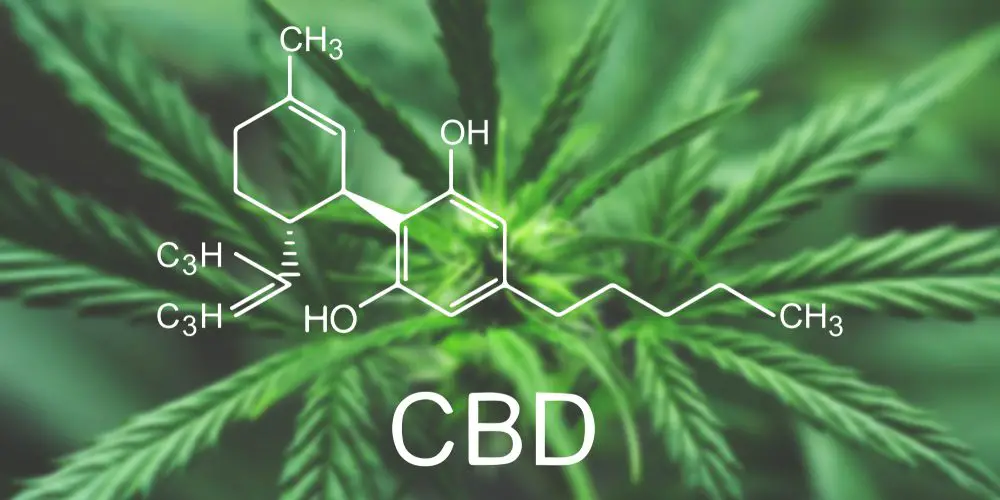
Unlike THC, CBD does not bind with the CB1 and CB2. It could only influence the CB1 receptor indirectly. To provide psychiatric benefits, CBD interacts with other target sites. Of note is the 5-HT1A receptor, which mediates both serotonergic and cortical glutamate mechanisms. By enhancing their levels in the prefrontal cortex, CBD can impact mood and anxiety with fast-acting antidepressant properties.
CBD activates the brain-derived neurotrophic factor (BDNF)-TrkB signaling pathway and synaptogenesis in the prefrontal cortex. Because of that, it cannot only provide quick relief but also sustain the antidepressant-like effects.
The currently available antidepressant medications tend to have a delayed onset and low efficacy. It emphasizes the need for a more effective and faster-acting drug. The above findings suggest that CBD may well fulfill this role.
Marijuana and Depression: A Love-Hate Relationship
Many individuals with depression are turning to marijuana for symptom relief. Can science back up this trend?
The answer is not definitive. Although several studies show the potential of marijuana, its use is also not without risks. For example, it has been associated with other psychiatric conditions such as anxiety, psychosis, and schizophrenia. If there is a silver lining here, then it is that these conditions are a result of overconsumption.
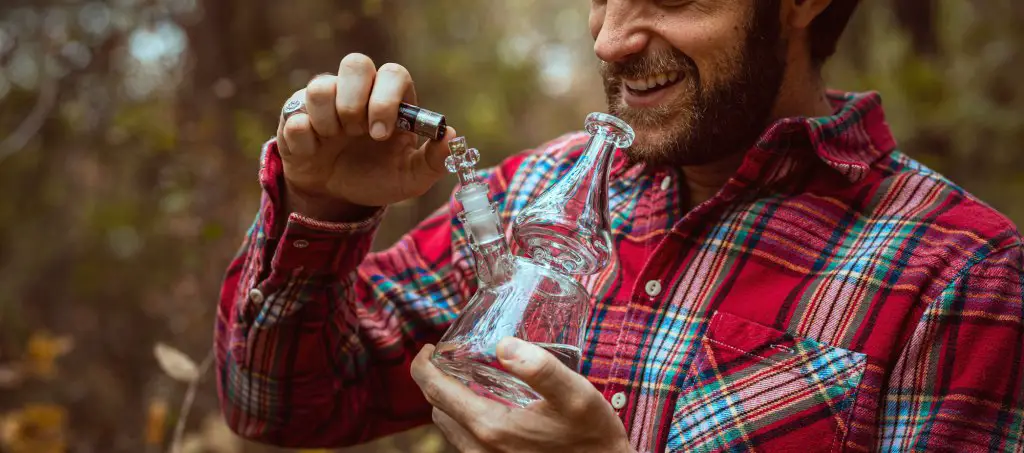
The traditional medication for depression works, but they could be better, which is why marijuana is a viable alternative. Use it responsibly, and you could take advantage of its therapeutic benefits – one of which is alleviating depressive symptoms.
You might also want to look into CBD. Remember, most of the adverse outcomes are due to THC. As for CBD, it is non-psychoactive and relatively safe. More importantly, it appears to have potent antidepressant properties and is being touted as an alternative to current medications.
One can only hope that more and more studies will be conducted. With luck, it will not be long before experts finally solve the puzzle regarding marijuana and depression.

